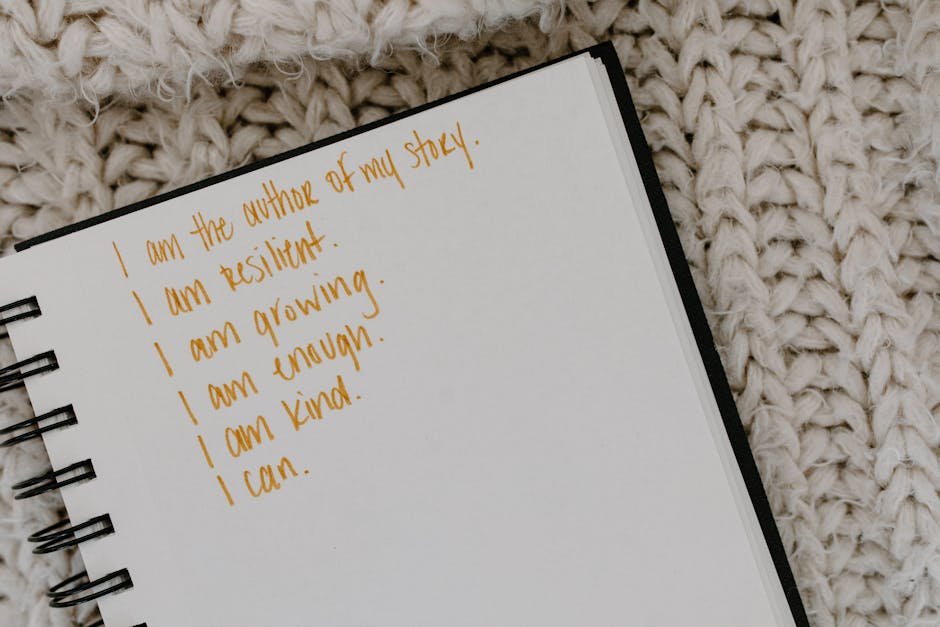Journaling for Mental Clarity: Tips and Techniques
In today’s fast-paced world, finding mental clarity can often feel like a Herculean task. With countless distractions and endless to-do lists, our minds are constantly buzzing. However, there’s a simple yet powerful tool that can help: journaling. 📝 In this blog post, we’ll explore the art of journaling and how it can lead to greater mental clarity. Let’s dive in!
Table of Contents
- Introduction
- Benefits of Journaling
- Getting Started with Journaling
- Effective Techniques for Journaling
- Tips for Maintaining a Journaling Habit
- Conclusion
- FAQs
Introduction
Journaling has been used for centuries as a means of self-expression and reflection. It’s more than just putting pen to paper; it’s a way to process emotions, gain insights, and achieve a clearer state of mind. Whether you’re dealing with stress, seeking creative inspiration, or simply trying to make sense of your thoughts, journaling can be an invaluable tool.
Benefits of Journaling
There are countless benefits to keeping a journal, both mental and emotional. Here are some of the most notable:
1. Reduces Stress: Writing down your thoughts and feelings can help you process emotions and reduce stress levels. It’s a safe space to vent without judgment.
2. Enhances Self-Awareness: By regularly reflecting on your experiences and feelings, you develop a deeper understanding of yourself.
3. Boosts Creativity: Journaling encourages free-flowing thought, which can lead to new ideas and creative breakthroughs.
4. Improves Problem-Solving Skills: Writing about challenges allows you to view them from different perspectives, helping to generate solutions.
5. Enhances Emotional Intelligence: Understanding and articulating emotions in your journal can improve your ability to manage them effectively in real life.
Getting Started with Journaling
Starting a journaling habit can be intimidating, but it doesn’t have to be. Here are some simple steps to get you started:
Choose Your Medium: Decide whether you prefer a traditional notebook, a digital app, or even voice memos. The key is to find what feels most comfortable for you.
Set a Routine: Consistency is crucial. Set aside a specific time each day or week for journaling. Mornings and evenings work well for many people, as they bookend your day.
Start Small: You don’t need to write pages and pages. Begin with just a sentence or two, especially if you’re feeling overwhelmed. Over time, you’ll naturally write more.
Effective Techniques for Journaling
There are numerous journaling techniques to explore. Here are a few popular ones:
Free Writing: Set a timer for 10 minutes and write whatever comes to mind without worrying about grammar or structure. This stream-of-consciousness approach can be incredibly liberating.
Gratitude Journaling: Focus on the positive by writing down three things you’re grateful for each day. This practice can shift your mindset to one of abundance and positivity.
Prompt Journaling: Use prompts to guide your writing. Prompts can be questions or statements designed to provoke thought, such as “What am I proud of today?” or “Describe a moment when you felt truly happy.”
Mind Mapping: If you’re a visual thinker, try creating mind maps in your journal. This technique helps organize thoughts and ideas graphically.
Tips for Maintaining a Journaling Habit
Once you start journaling, maintaining the habit is key to reaping its full benefits. Here are some tips to help you stay on track:
Be Patient: Don’t expect immediate results. Like any habit, journaling takes time to develop and show benefits.
Eliminate Distractions: Create a peaceful environment for journaling. Turn off your phone and find a quiet space to focus solely on your writing.
Be Honest: Your journal is for your eyes only, so be truthful with yourself. Honesty fosters deeper self-discovery and clarity.
Mix It Up: If you find yourself getting bored, try different techniques or prompts to keep things fresh and engaging.
Conclusion
Journaling is a powerful practice that can lead to greater mental clarity, reduced stress, and improved emotional intelligence. By taking the time to explore your thoughts and emotions on paper, you open the door to self-discovery and a more balanced life. So grab your pen, find a quiet spot, and start your journaling journey today. Who knows what insights you might uncover? 🌟
FAQs
Q: How often should I journal?
A: There’s no right or wrong answer. Daily journaling is beneficial, but even once or twice a week can make a significant impact.
Q: What if I miss a day?
A: Don’t stress! Journaling is meant to be a helpful tool, not a chore. Simply start again the next day.
Q: Can I journal digitally?
A: Absolutely! Use whatever medium feels most comfortable and convenient for you, whether it’s a physical notebook, a digital app, or voice memos.
Q: What should I do if I don’t know what to write?
A: Try using prompts or start with a simple reflection on your day. Remember, there are no rules in journaling—write whatever comes to mind.


